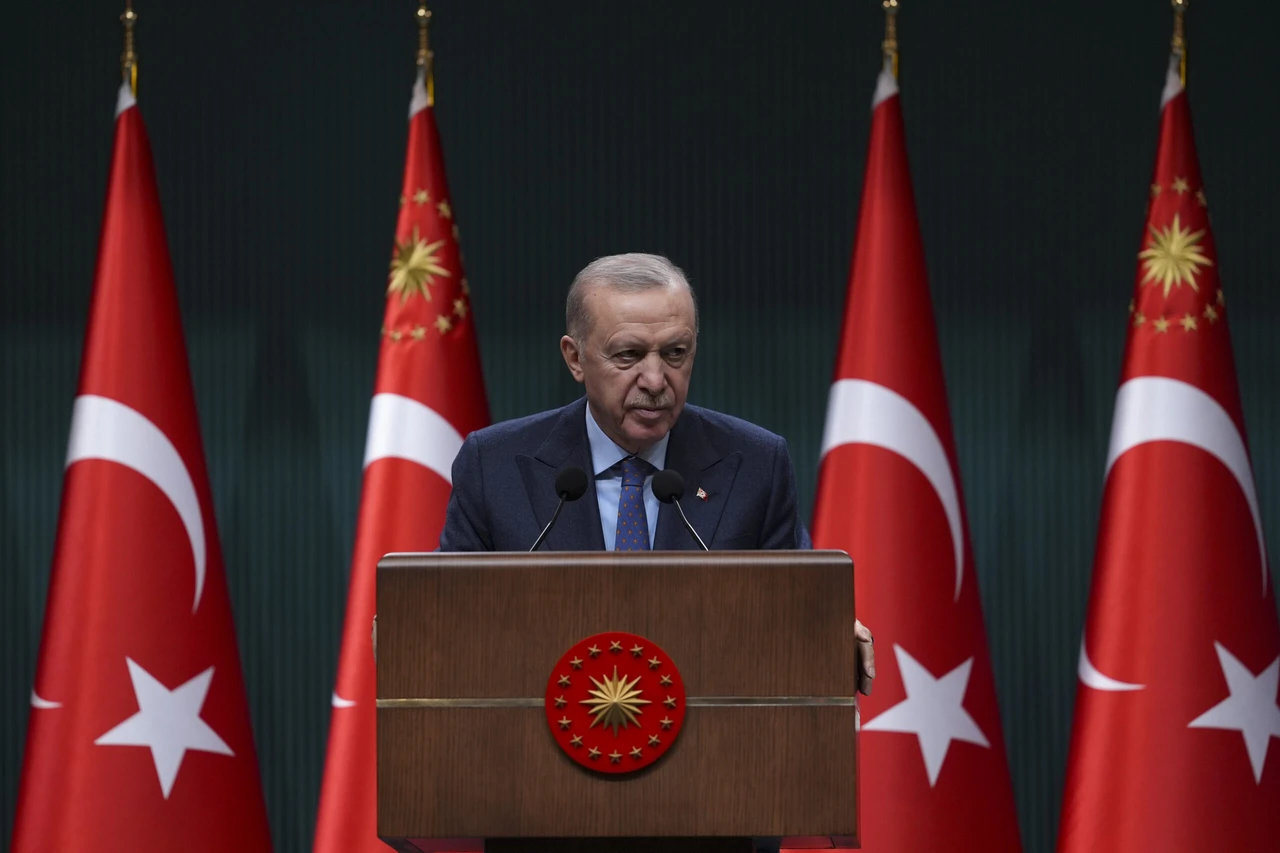South Africa tells ICJ Israel is weaponizing hunger against Palestinians in Gaza
 The hearing at the International Court of Justice commenced with the presence of the Court’s esteemed panel of judges in The Hague, Netherlands on April 29, 2025. (AA Photo)
The hearing at the International Court of Justice commenced with the presence of the Court’s esteemed panel of judges in The Hague, Netherlands on April 29, 2025. (AA Photo)
South Africa on Tuesday accused Israel at the International Court of Justice (ICJ) of using starvation as a weapon against Palestinians in the occupied territories, asserting that such actions violate Israel’s international legal obligations.
“International law prohibits Israel from the use of starvation as a method of warfare, including under siege or blockade,” said Jaymion Hendricks, South Africa’s representative, during the second day of public hearings. “Israel may not collectively punish the protected Palestinian population, which it holds under unlawful occupation.”
Hendricks said Israel has “deployed the full range of techniques of hunger and starvation,” describing a system that inflicts suffering and death through food restrictions. He called the situation a moment of genocide and insisted that “despite the horrific attempts by Israeli officials to characterize them otherwise, Palestinians are human beings.”
He urged Israel to “cooperate in good faith with the United Nations and render it every assistance,” comply with its obligations as an occupying power, and ensure access to food, medicine, and humanitarian aid.
Hendricks also demanded that Israel “fully cease hostilities” and immediately reverse its decision to expel UNRWA and other U.N. agencies.
Regarding the role of the U.N., he said it “must demand and negotiate for the removal of barriers imposed by Israel” and continue providing humanitarian assistance despite Israeli restrictions. He added that third states “have an obligation not to recognize Israel’s internationally wrongful acts,” including its banning of UNRWA, and should refrain from supplying arms to Israel.
Zane Dangor, director general of South Africa’s Department of International Relations and Cooperation, told the court: “The humanitarian aid system is facing total collapse. This collapse is by design.”
Another South African representative, Nokukhanya Jele, said Israel may not impose measures prohibited under international humanitarian law, such as mass displacements, destruction of property, and targeting schools or educational content.
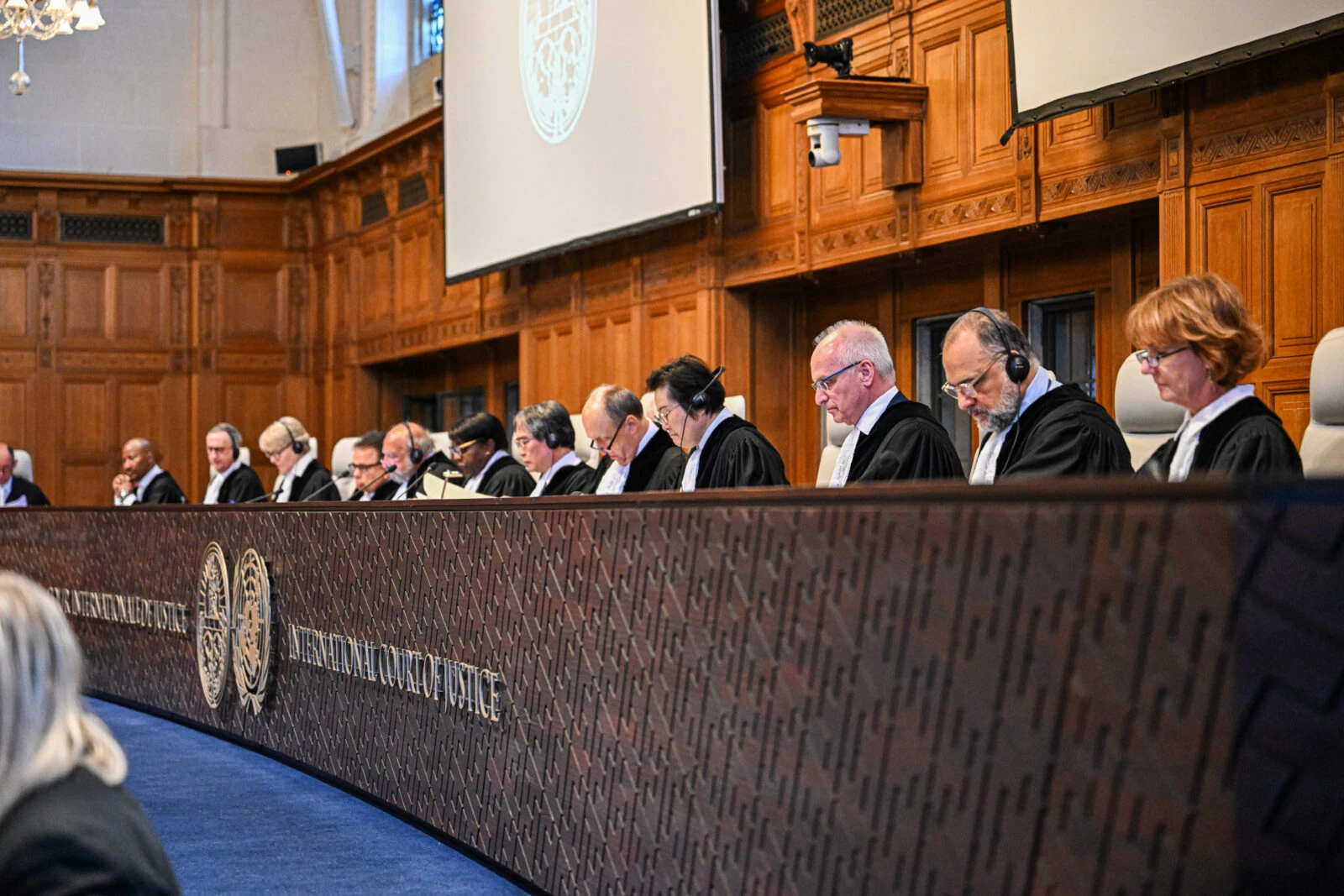
Algeria: Israel in breach of UN obligations
Algerian representative Samia Bourouba called on the court to declare that Israel is violating its legal obligations as a U.N. member and occupying power.
“In view of the violations committed by Israel, we are witnessing a lack of effective reaction from the international community,” Bourouba said.
Maya Sahli Fadel, also representing Algeria, emphasized that humanitarian aid must never become “a political bargaining chip or a weapon of war.”
“Saving lives must never be a controversial issue,” she said. “The principles of international law that aim at protecting civilians should not be swept aside, and impunity should not persist.”
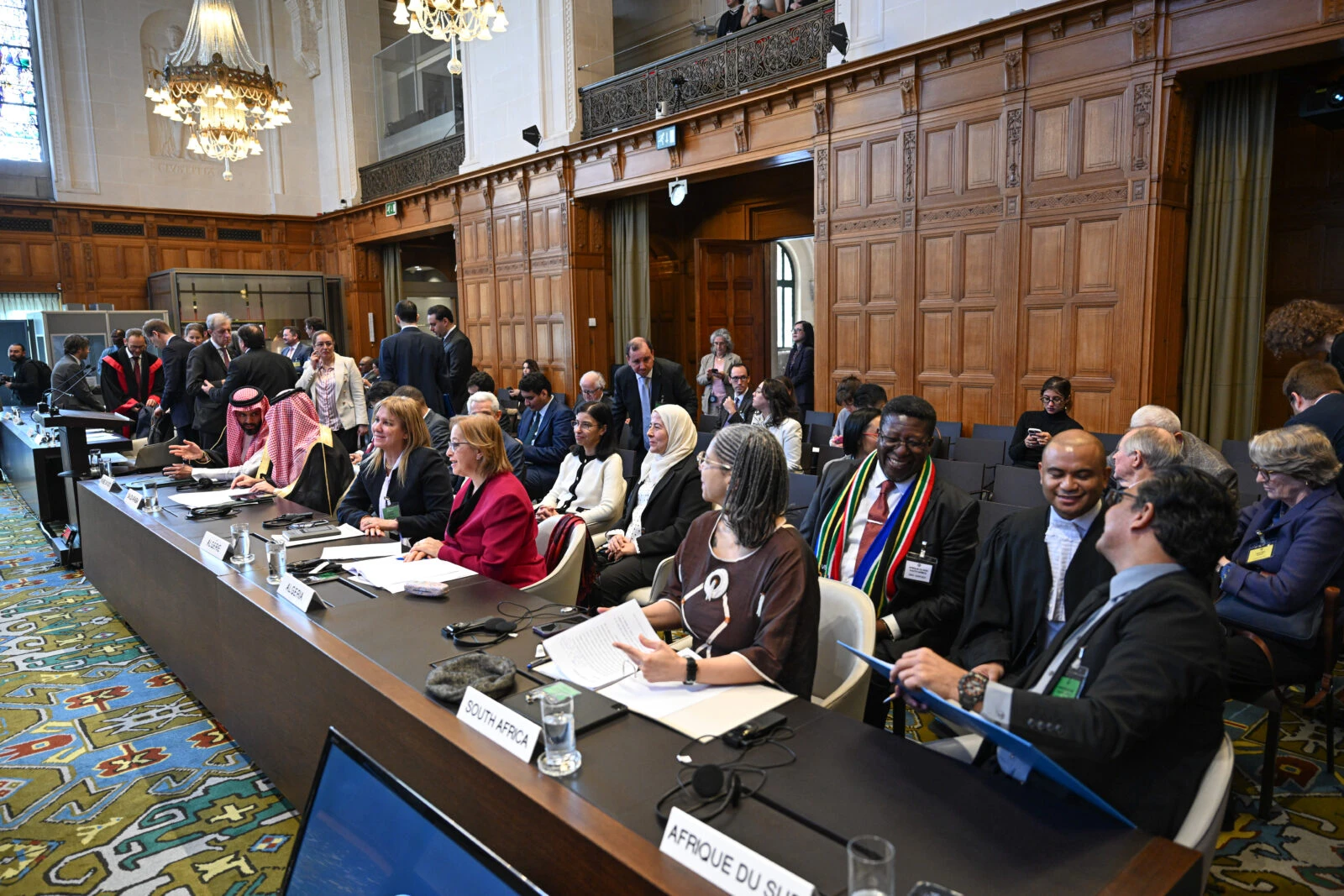
‘Israel ignored court orders’
Saudi Arabia told the court that Israel has ignored the ICJ’s provisional orders and intensified the humanitarian crisis in Gaza.
“The court’s ruling marked a clear path for Israel to follow,” said Saudi representative Mohammed Saud Alnasser, referencing the March 2024 ruling requiring Israel to allow “unhindered provision” of aid to Gaza. “Sadly, but predictably, Israel chose to ignore the court’s ruling.”
Alnasser said Israel has worsened the crisis and turned Gaza “into an unlivable pile of rubble,” killing thousands of civilians. He added that Israel’s failure to protect U.N. premises “can never be justified” on grounds of national security.
Saudi Arabia reiterated its commitment to a sovereign Palestinian state within 1967 borders with East Jerusalem as its capital. “This unwavering position is non-negotiable,” Alnasser said.
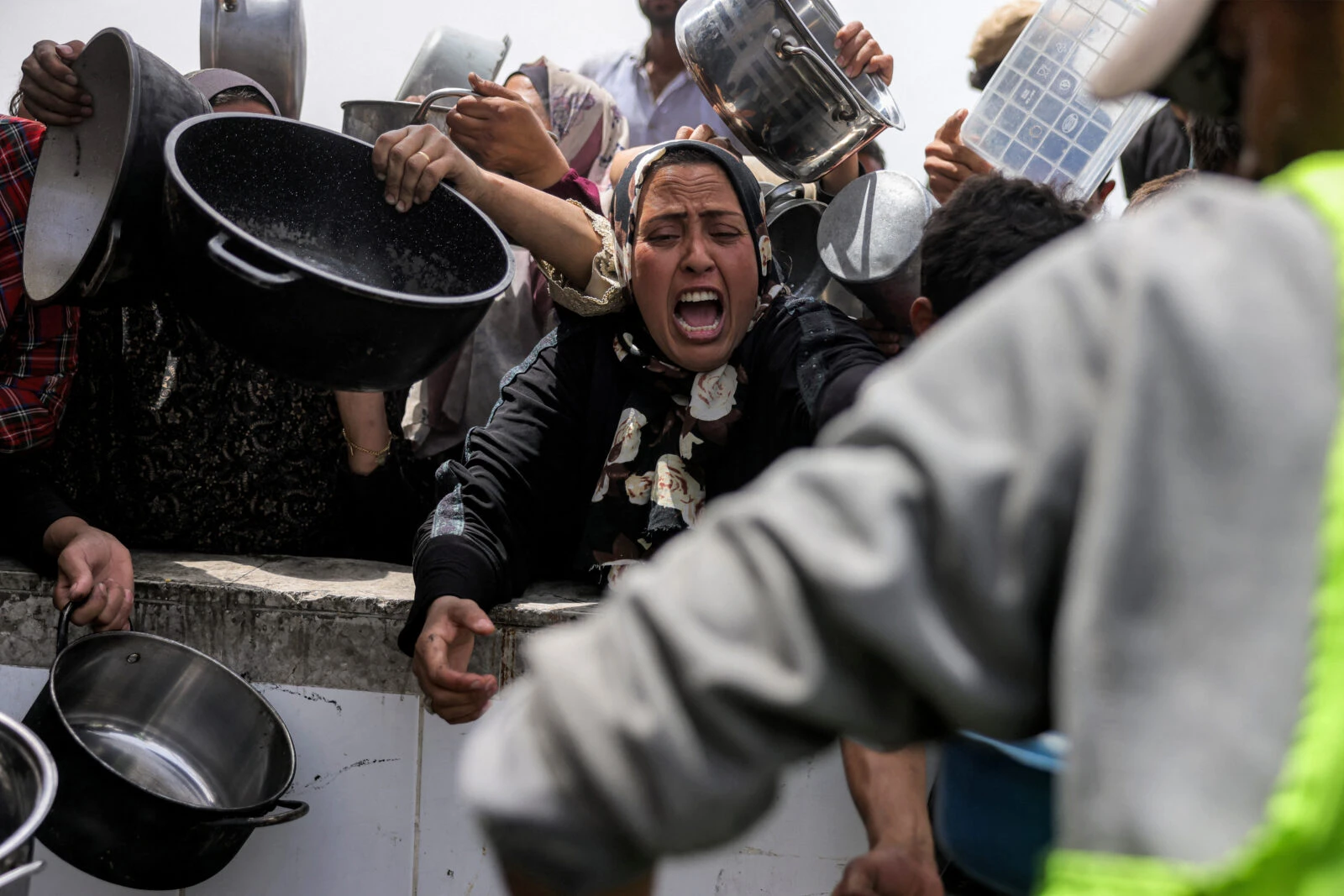
Belgium, Colombia decry humanitarian conditions
Professor Vaios Koutroulis, speaking for Belgium, warned that Gaza faces renewed threats of famine and malnutrition. Access to clean water and sanitation remains “very limited and very unequal,” he said.
He emphasized that Israel’s military operations must comply with international law and “not in spite of international law.”
Colombia’s representative, Mauricio Jaramillo Jassir, said Israel is breaching its duties by blocking humanitarian aid and essential services. He urged Israel to refrain from targeting or destroying resources vital to civilian survival and criticized Israeli restrictions on UNRWA.
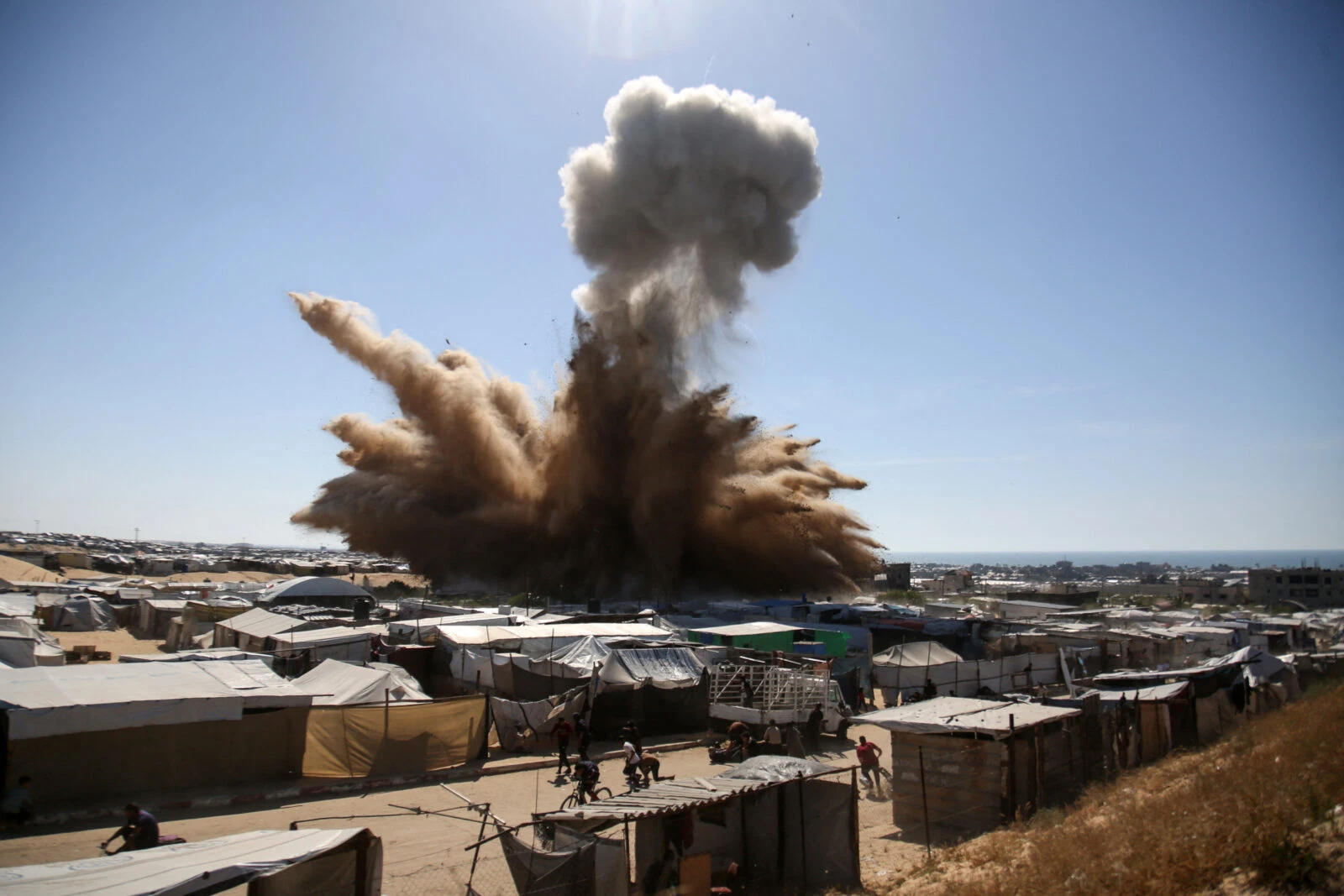
Gaza catastrophe result of ‘colonial, genocidal’ policies
Bolivia told the court that the humanitarian catastrophe in Gaza stems from Israel’s “colonial and genocidal actions” and “unlawful occupation.”
“The situation is marked by devastating loss of life, widespread destruction, and the systematic obstruction of essential life-saving aid,” said Bolivia’s representative Roberto Calzadilla Sarmiento.
Calzadilla urged the court to issue an advisory opinion to clarify whether obstructing aid violates international law and impedes the rights of third states seeking to alleviate humanitarian crises.
Ralph Wilde, also representing Bolivia, noted that Israel’s unlawful presence in the territories creates paradoxes in international law by triggering obligations for other states while denying Palestinian self-determination.
“We respectfully request that the court safeguard the state’s ability to discharge its special legal duty to act,” Wilde concluded.
Brazil: Advisory opinion ‘urgently needed’
Brazilian representative Marcelo Viegas said an advisory opinion is urgently required as the humanitarian situation in Gaza worsens.
“In this troubling context, the present advisory opinion is sorely and urgently needed,” said Viegas, condemning Israeli-imposed barriers to food, medicine, and essential supplies.
“Compliance with the Fourth Geneva Convention and the rulings of this court is not optional. It is a legal imperative,” he said, also calling on Israel to cease measures against UNRWA.
Brazil hopes the court will affirm Palestinians’ inalienable right to self-determination and declare Israel’s obligation to comply with humanitarian law and the U.N. Charter.
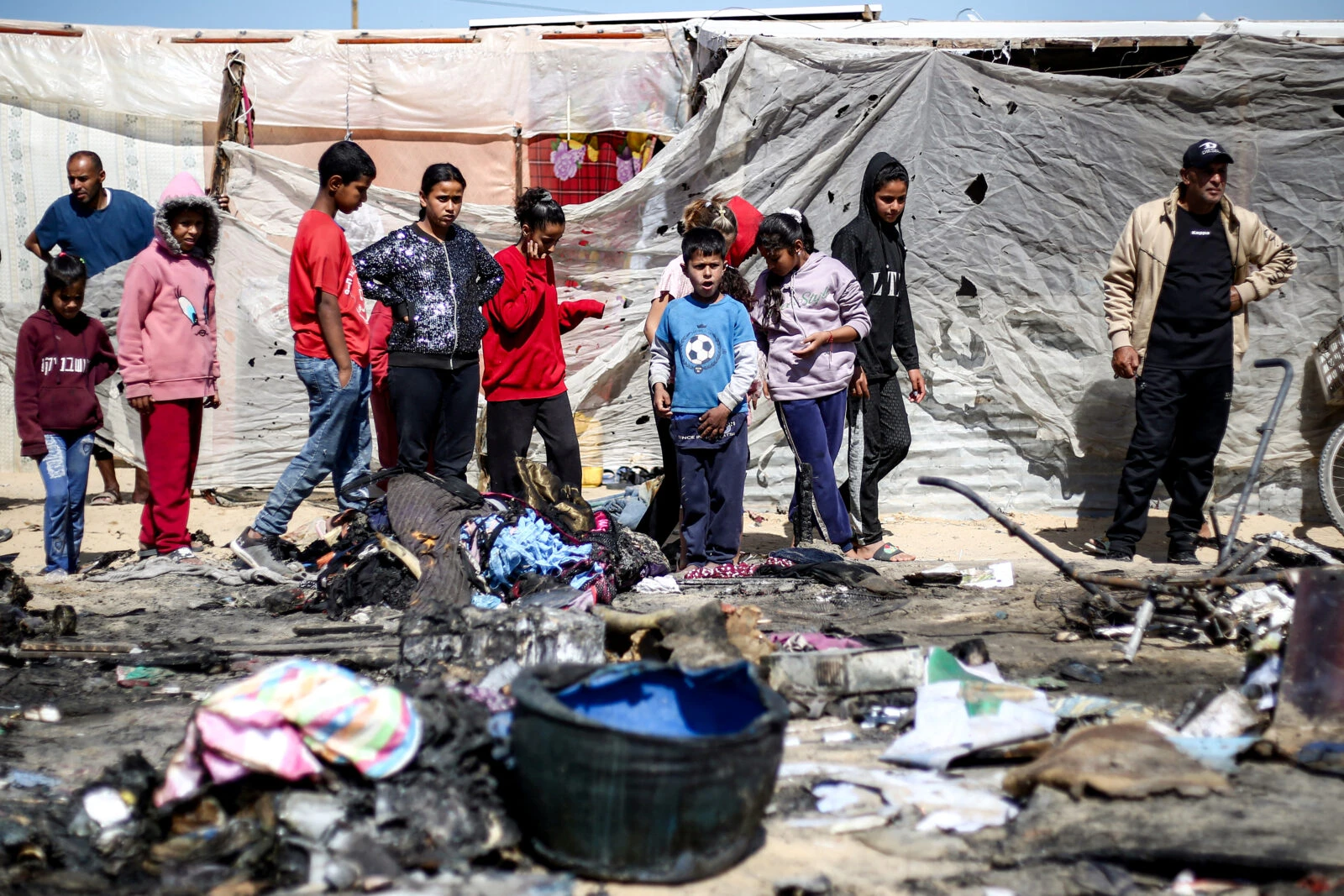
Chile, Spain underscore international legal norms
Chilean representative Claudio Troncoso Repetto said the court’s advisory opinion is critical to upholding international law and the legitimacy of global institutions.
“The question submitted to the court is urgent and comes at a time when international law and the relevance of international organizations are as important as they have ever been,” he said.
Chile’s Valeria Chiappini added that member states must respect U.N. privileges and cannot unilaterally take actions against its agencies or staff.
Spain’s representative, Maria Femenia, said preventing U.N. and international organizations from operating in the Occupied Palestinian Territory violates international law and the right to self-determination.
She stressed that Israel must “cooperate in good faith” with U.N. agencies and uphold agreements governing their activities. Blocking UNRWA’s operations, she said, contradicts Israel’s legal obligations under the U.N. Charter and international humanitarian law.
Israel resumed its attacks in Gaza on March 18, ending a cease-fire and prisoner exchange agreement that had been in place since Jan. 19.
More than 52,300 Palestinians, most of them women and children, have been killed since the Israeli offensive began in October 2023.



